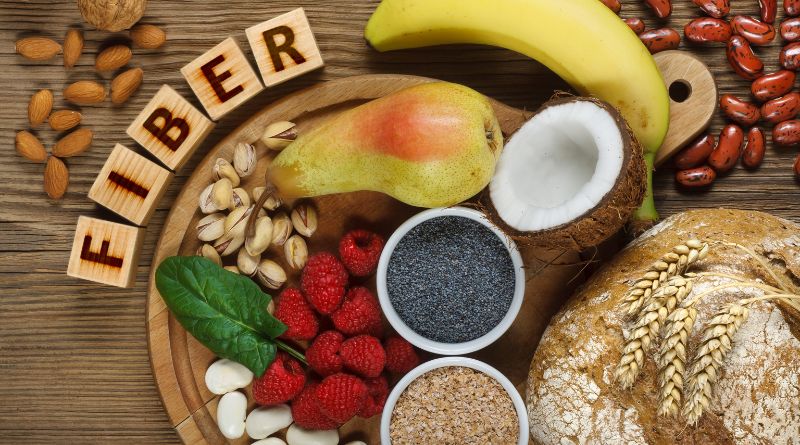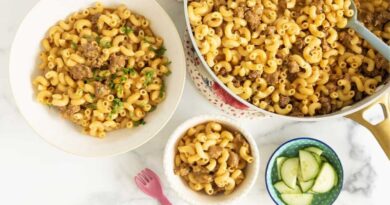Maintaining a healthy digestive system is essential for overall well-being and optimal functioning of the body. One key factor in promoting digestive health is consuming an adequate amount of dietary fiber. Fiber plays a crucial role in regulating bowel movements, preventing constipation, and supporting a healthy gut microbiome. In this blog post, we will explore ten fiber-rich foods that can help nourish your digestive health and promote regularity. From whole grains and legumes to fruits and vegetables, these foods provide a natural and effective way to support your digestive system. By incorporating these fiber-rich foods into your diet, you can enhance your digestive health and experience the benefits of improved regularity.
Healthy Fiber-Rich Foods for Regularity
Digestive health plays a pivotal role in our overall well-being, and incorporating fiber-rich foods into our diets is a key way to support regularity and a healthy gut. Fiber, found in plant-based foods, contributes to proper digestion, helps prevent constipation, and supports a balanced microbiome. In this guide, we’ll explore ten fiber-rich foods that can nourish your digestive system and promote regularity, ensuring you maintain optimal gut health for a vibrant lifestyle.
1. Whole Grains
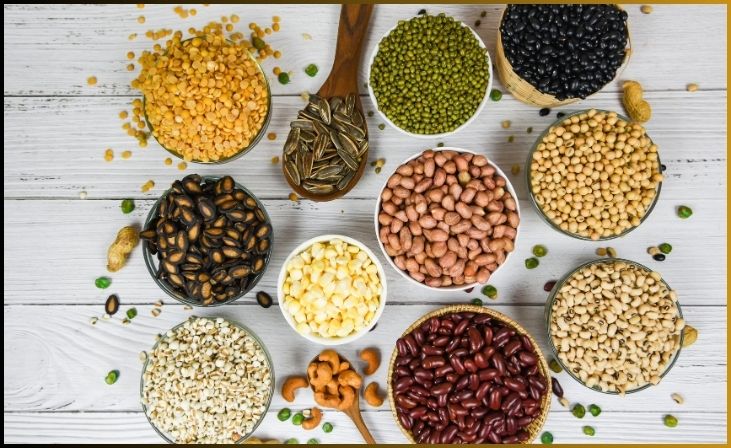
Whole grains, such as oatmeal, quinoa, and whole wheat bread, stand as nutritional powerhouses, offering a rich source of dietary fiber. These grains contribute to digestive health by adding essential bulk to stool, aiding in its smooth passage through the digestive tract. Oatmeal, with its soluble fiber, helps regulate cholesterol levels, while quinoa provides a complete protein source. Whole wheat bread, made from the entire grain, adds not only fiber but also a range of nutrients.
Incorporating these grains into your meals not only supports regular bowel movements but also provides sustained energy and a wealth of essential nutrients for overall well-being. As a versatile and delicious addition to various dishes, these whole grains make it easy to enhance your diet with the fiber necessary for optimal digestive function.
2. Legumes
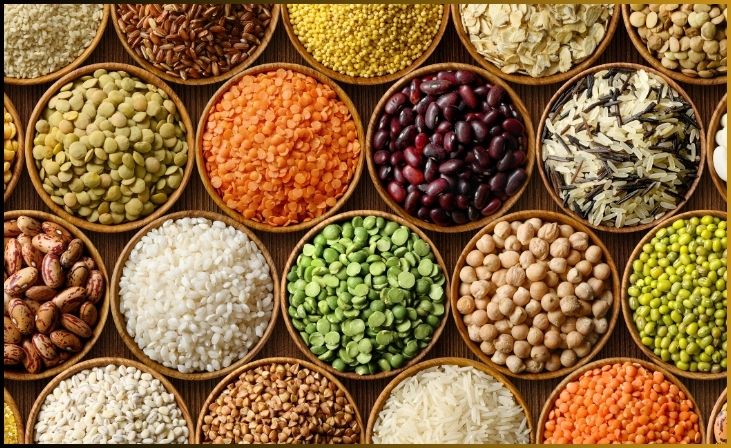
Beans, lentils, and chickpeas emerge as nutritional powerhouses, providing an excellent boost of dietary fiber to support digestive health. Beyond their fiber content, these legumes are rich sources of plant-based protein and an array of essential nutrients. The combination of fiber and protein in beans, lentils, and chickpeas not only aids in regular bowel movements but also promotes a feeling of fullness, making them valuable for weight management. The soluble fiber found in these legumes supports a healthy balance of cholesterol levels.
Adding these versatile and nutrient-dense legumes to your meals not only enhances the flavor but also contributes to overall well-being, making them a valuable component of a fiber-rich diet.
3. Fruits

Indulging in fiber-rich fruits, such as berries, apples, and pears, offers a delightful and naturally sweet way to support digestive health. Packed with dietary fiber, these fruits play a crucial role in maintaining regular bowel movements and promoting overall digestive well-being. Berries, renowned for their antioxidant properties, go beyond mere sweetness, providing additional benefits for digestive health. Because these fruits have both soluble and insoluble fiber, they help keep your gut healthy by keeping the balance of good bacteria and preventing constipation.
Including a variety of fiber-rich fruits in your diet not only satisfies your sweet cravings but also adds a flavorful and nutritious dimension to your meals, making them a tasty and wholesome choice for digestive nourishment.
Quick Link: Comfort Food Recipes for When You Need a Hug: Cozy Delights to Warm Your Heart
4. Vegetables

Incorporating fiber-rich vegetables like broccoli, carrots, and Brussels sprouts into your diet not only provides a wealth of essential vitamins and minerals but also contributes significantly to digestive health. These vegetables are abundant sources of dietary fiber, which plays a vital role in promoting regular bowel movements and supporting the overall well-being of the digestive tract. The combination of insoluble and soluble fiber in these veggies adds bulk to stool, facilitating its movement through the digestive system.
Beyond their fiber content, broccoli, carrots, and Brussels sprouts offer a spectrum of nutrients that contribute to a healthy gut environment. By including these nutrient-dense vegetables in your meals, you not only enhance the flavor and variety of your diet but also nurture your digestive system for optimal functioning.
5. Nuts and Seeds
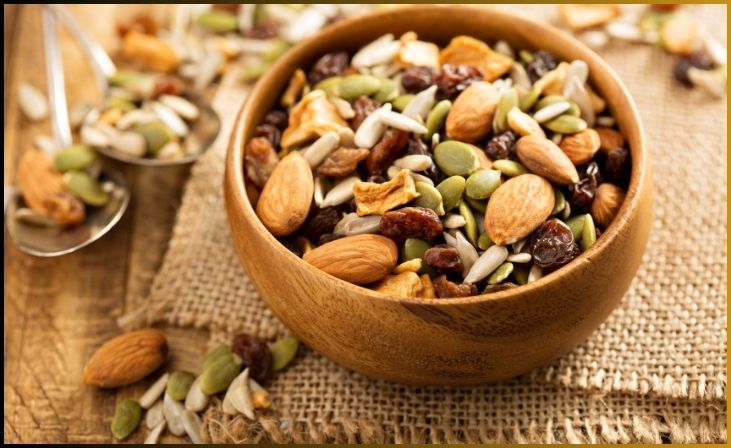
Almonds, chia seeds, and flaxseeds may be small in size, but they pack a powerful punch when it comes to fiber content. Including these nuts and seeds in your diet is both convenient and beneficial. Whether snacking on a handful of almonds or incorporating chia seeds and flaxseeds into your meals, these additions contribute significantly to your daily fiber intake. The fiber in almonds, chia seeds, and flaxseeds plays a crucial role in supporting digestive health by promoting regular bowel movements.
Additionally, their ability to induce a feeling of fullness can aid in managing appetite and preventing overeating. By incorporating these nutrient-dense sources of fiber, you not only enhance the nutritional profile of your diet but also contribute to the overall well-being of your digestive system.
6. Avocado
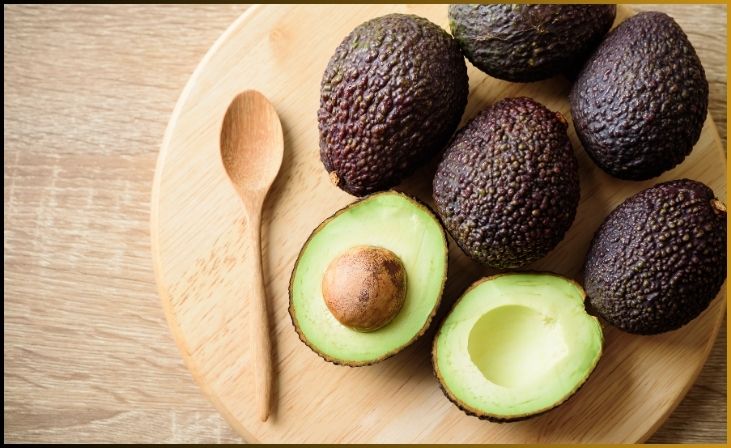
Avocado, beyond its trendy status as a toast-topper, stands out as a creamy fruit with a wealth of nutritional benefits. Rich in healthy fats and boasting a good amount of dietary fiber, avocado is a versatile addition to your diet. Its unique nutritional profile not only supports digestive health by adding bulk to stool but also contributes to overall wellness. The healthy fats in avocados, including monounsaturated fats, are known to be heart-healthy and can aid in nutrient absorption.
The combination of fiber and healthy fats helps regulate digestion, promoting regular bowel movements and preventing constipation. Including avocado in your meals not only enhances flavor and texture but also provides a nourishing boost to your digestive system. So, whether spread on toast or incorporated into salads and smoothies, avocado adds both creaminess and nutritional value to your diet.
7. Chia Pudding
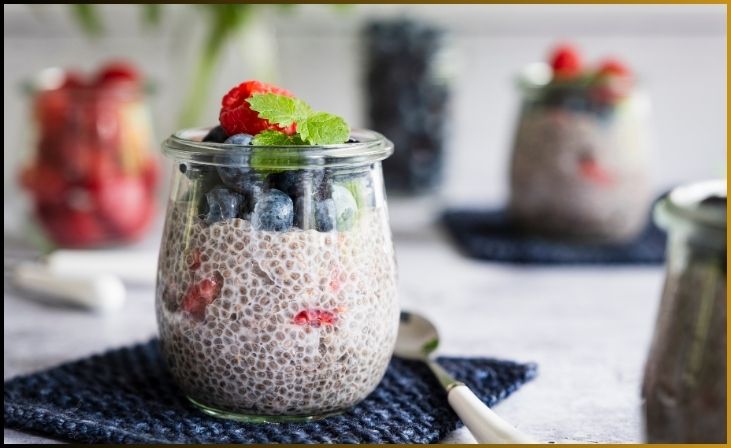
Chia seeds emerge as a fiber powerhouse, and one delightful way to incorporate them into your diet is by crafting a chia seed pudding. Combine these tiny seeds with almond milk and your preferred assortment of fresh fruits to concoct a satisfying and fiber-rich breakfast or snack option. The magic of chia seeds lies in their ability to absorb liquid, contributing not only to the pudding’s texture but also aiding in keeping you hydrated. This versatile and easy-to-make pudding offers a delicious blend of flavors, textures, and nutritional benefits.
Packed with fiber, omega-3 fatty acids, and various nutrients, chia seed pudding is a wholesome addition to your repertoire of health-conscious meals and snacks. Whether enjoyed as a quick breakfast or a refreshing dessert, this chia seed creation serves as a tasty and nutritious way to support your digestive health.
Incorporating fiber-packed foods into your diet can have a positive impact on your digestive health and overall well-being. Whether you’re enjoying whole grains, legumes, fruits, vegetables, nuts, and seeds, or indulging in avocado and chia pudding, each of these foods offers its unique contribution to a healthier gut. Remember that consistency is key, so aim to include a variety of these fiber-rich options in your daily meals for optimal digestive regularity.
8. Dark Chocolate
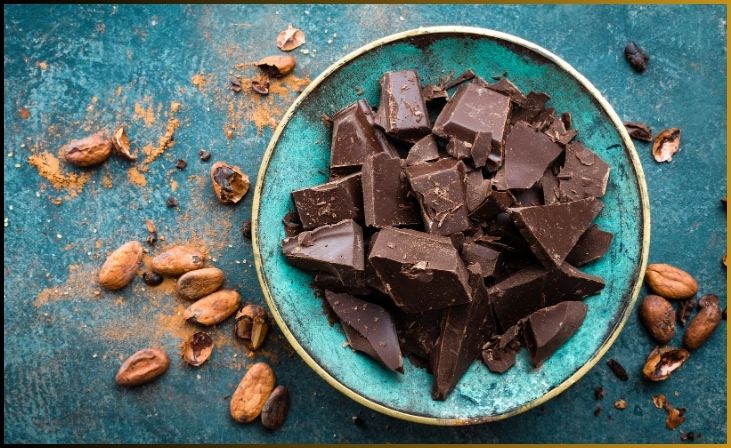
Indulge in a surprising twist of health as you savor the delectable richness of dark chocolate, an unexpected source of dietary fiber and antioxidants. Contrary to the notion that treats can’t be healthy, choosing dark chocolate with a high cocoa content unveils a sweet yet nutritious delight. Picture relishing the velvety goodness of a high-quality dark chocolate bar, not only satisfying your sweet tooth but also contributing to your daily fiber intake. The presence of antioxidants in dark chocolate adds another layer of benefit, as these compounds help combat oxidative stress in the body.
Embrace the guilt-free pleasure of a sweet treat that aligns with your commitment to a balanced and health-conscious lifestyle. Opting for dark chocolate with a higher cocoa content becomes a simple yet delightful way to intertwine indulgence with nutritional value, proving that sometimes, sweetness and health can go hand in hand.
9. Popcorn

Discover the wholesome delight of popcorn, a satisfying and low-calorie snack that emerges as a whole-grain powerhouse. Brimming with dietary fiber, popcorn not only satiates your snack cravings but also offers a healthier alternative to traditional options when prepared in moderation. Picture the air-popped kernels, a crunchy canvas awaiting your flavor preferences. As a whole grain, popcorn contributes to your daily fiber intake, promoting digestive health and providing a sense of fullness. Opting for this simple yet versatile snack without excessive butter or toppings transforms it into a guilt-free pleasure.
Imagine the joy of munching on a bowl of freshly popped popcorn, knowing you’re making a mindful choice that aligns with your health-conscious goals. Embrace popcorn as the go-to option for a satisfying crunch that doesn’t compromise on nutrition, making snack time both enjoyable and nourishing.
10. Sweet Potatoes
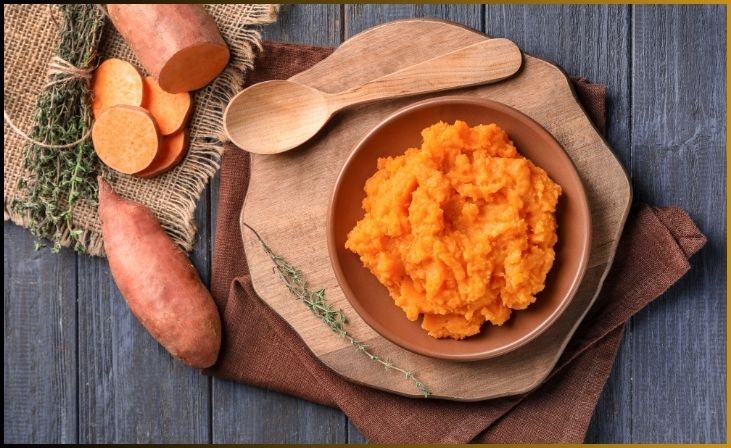
Elevate the conclusion of your meal with the nutritional powerhouse of sweet potatoes. These vibrant tubers transcend their delicious flavor, offering a dual benefit of high fiber content and a robust profile of vitamins and minerals. Imagine the fork gliding through the soft, orange flesh, a testament to the wholesome goodness within. As a rich source of fiber, sweet potatoes contribute to digestive health, aiding in a sense of fullness after your meal. Envision the array of vitamins and minerals, like vitamin A and potassium, fortifying your immune system and promoting radiant, healthy skin.
Incorporating sweet potatoes into your diet becomes a flavorful and nutritious choice, turning the end of your meal into a celebration of both taste and well-being. Embrace the goodness of sweet potatoes, transforming your dining experience into a nourishing ritual that supports your overall health.
Final Words
Nourishing your digestive health is vital for overall well-being, and consuming fiber-rich foods is an excellent way to support your digestive system. The ten fiber-rich foods highlighted in this blog post offer a variety of options to promote regularity and maintain a healthy gut. Incorporating whole grains, legumes, fruits, and vegetables into your diet can provide the necessary fiber to support proper digestion and prevent constipation. Remember to increase your fiber intake gradually and drink plenty of water to help the fiber work effectively. By prioritizing these fiber-rich foods, you can nourish your digestive health and enjoy the benefits of a well-functioning digestive system.
FAQs
Fiber adds bulk to stool, preventing constipation and promoting regular bowel movements. It also supports a healthy gut microbiome, contributing to overall digestive well-being.
Gradually introduce fiber-rich foods like fruits, vegetables, whole grains, and legumes into your meals. Drink plenty of water to aid digestion and help fiber move through your digestive tract.
Yes, there are soluble and insoluble fibers. Soluble fiber dissolves in water and can help lower cholesterol, while insoluble fiber adds bulk to stool. A balanced intake of both types is beneficial for digestive health.
Yes, fiber-rich foods are often nutrient-dense and can contribute to a feeling of fullness. This can help control appetite and support weight management when part of a balanced diet.

